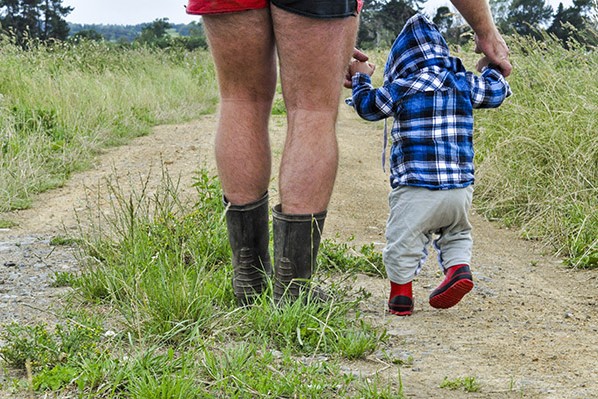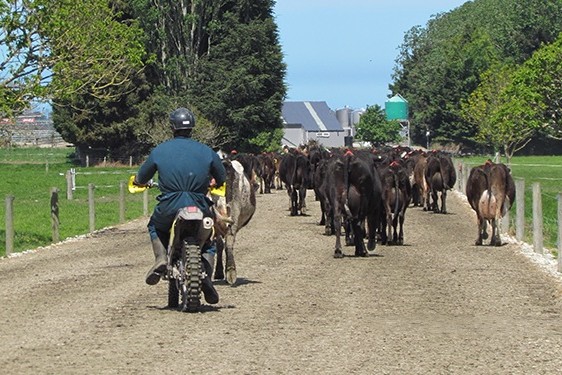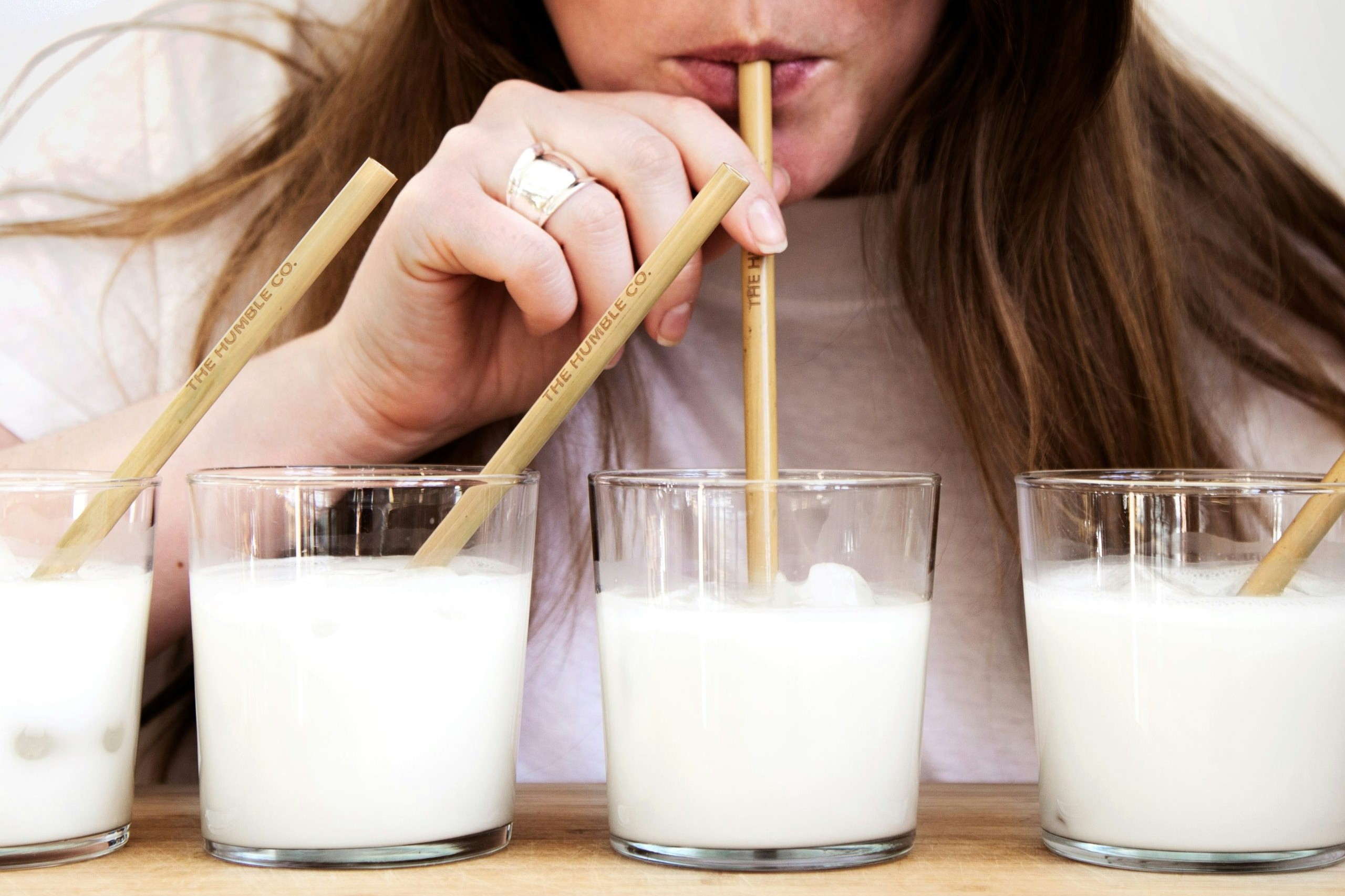When Lisa sat her husband Hamish down in the middle of calving and told him she thought he was depressed, the flood gates opened and he cried on the couch. It was a relief to realise there was something wrong, Hamish says. Seven years later the couple know what signs to look out for and how to manage the depression. Sheryl Haitana reports.
Hamish and Lisa Lile are full of laughter and banter as they sit around the kitchen table on a sunny winter day.
After 21 years of marriage the couple say the key is communication and being able to have a laugh with each other every day.
The laughter and the communication disappeared seven years ago, however, when Hamish sank into depression and Lisa had to pull him out.
She had watched her husband’s behaviour and personality change over time. They were sharemilking 390 cows at Te Awamutu at the time. Hamish would get angry easily and would get short with people, mumbling and swearing to himself. He was exhausted all the time, but not sleeping. When he did fall asleep on the couch it was within 30 seconds of sitting down.
He had become a recluse, avoiding family and social gatherings, working extremely long hours out on the farm, not spending time or communicating with Lisa or their two daughters, who were 10 and 13 at the time.
“He didn’t interact with me or the kids. We had become recluses in our own home.”
Lisa confided in a friend who suggested talking to Hamish about the fact they he may be depressed.
“We had just started calving and we had mountains of work to do but I sat him down and I told him you’re either going to walk out or you’re going to listen. I told him I thought he was depressed. I was expecting him to be defensive, but I opened the flood gates.”
Looking back, Hamish says he put a lot of pressure on himself to meet people’s high expectations. The pressures of farming mounted up.
“I felt like I had to prove myself all the time. Proving myself to family, friends and the farming community.”
Sharemilking next to a main road, Hamish would get phone calls from people criticising if a paddock was slightly pugged or a cow was down, or questioning his management, for example why he had the bulls out early.
“There were eyes on you all the time. I was working up to 20 hours a day. I always saw jobs that needed to be done, and I worked alone, I preferred to be in my own space.”
When Lisa said the word ‘depression’ to him it felt like a relief that there was actually something more going on, he says.
Lisa suggested Hamish needed to see a doctor and he agreed. He went to his general practitioner who put him on medication.
“It was probably the worst thing we could have done,” Lisa says.
“He went backwards even more, he was like a zombie for three months. I was struggling to get him out of bed and he had an episode where I thought he was going to take his own life.”
Desperate, Lisa rang the depression 0800 number and the Rural Support Trust but didn’t find the help she needed.
“They actually asked me what they could do. That is ingrained in my memory.”
They went back to the doctor who changed his medication, but when there was no difference after six weeks Lisa decided she needed to put a plan into action. She had a light-bulb moment and realised her husband was being drugged and she had to get him off the medication.
“I changed his diet, restricted his alcohol, got him exercising and weaned him off the medication. It took five weeks to wean him off.”
At the same time Lisa bought one, then a second mobile coffee business which she and Hamish started running at various locations around the Waikato – in between the farm work. The work got Hamish outside the farm gate and socialising with the public and it made a big difference.
Lisa also rang Federated Farmers when Hamish was at his worst. The person on the other end of the phone said they weren’t equipped to help, but took her name and number. A few months later they rang Lisa back and asked if Hamish would be interested in making a video on depression with John Kirwan.
“I didn’t ask Hamish because I knew he would say no. I just said yes and told Hamish a couple of days before they were due to come to the farm.
“He was still struggling big time, but that was his turning point.”
It was incredibly helpful to talk to Kirwan and to other people doing the videos who had been through the same thing, Hamish says.
“I thought if he can get over this, I can get over this too. Since that day I’ve met some awesome people.”
Hamish signed up to the FarmStrong Fit4Farming Cycle Tour in 2016 which he says was a fantastic event.
Seven years on there are times when Hamish diverts from his good diet and stops exercising – he’s still only human.
“I’ve always enjoyed my exercise, but with farming it’s hard to find the time.”
But he has learnt what his triggers are – tiredness and workload, and when he needs to get back on track.
“You never get over it, you learn to manage it and learn to talk about it,” he says.
“It’s not a weakness it’s an illness. You become a stronger person if you can talk about it and ask for help. Sometimes you just need to open up to that first person.”
The couple make sure they get off the farm twice a week. They go to the pub and listen to country music, go dancing, or just go for a drive and have a coffee somewhere.
They could have a coffee at home, but Hamish will be looking out at the cows or thinking about the jobs that need doing, Lisa says.
“My role is to look for the signs and say ‘righteo, let’s go for a drive’. I notice the difference in Hamish as soon as we drive out the driveway.
“The light goes on, he’s smiling and talkative. As soon as we get back to the farm the light goes off again.”
They are also rebuilding old family and friend relationships and making new friends by going out more and socialising. When you keep rejecting people they eventually cut you off and that has been hard, she says.
“We always found an excuse not to go to functions because Hamish didn’t want to talk to people and it was quite hurtful to family members.”
When Hamish was at his worst, Lisa distracted herself by running the girls around to all of their sports and activities. That was a bit of band-aid to what was really going on in her life and an excuse not to be able to go to family functions, she says.
She looks back now and wonders how she coped, but she is thankful she had the girls to keep her busy.
“I think the only way I got through it was by keeping myself busy. If I hadn’t I could have ended up being like Hamish (depressed).”
People sometimes ask Lisa why she stuck around when it got so bad.
“I never didn’t love him – it was that he needed help and it was hard to get help.”
It was not an easy thing to go through or to pull themselves out of, and she would like to see more experienced support available. The industry needs more people on the ground to deal with the cries for help, she says.
“They need people on the other end of the phone with experience and who know how to help.
“I get asked to help people, but I’m not an expert, I don’t have the tools or the expertise. I only know from our personal experience what has helped us.”
Rural women, who can find themselves supporting their farming men through their depression also need support when they are trying to pick the men up while holding the fort, she says.
Lisa was featured on TV One’s Seven Sharp two years ago making a plea for a service for the support people in the rural community.
“It was all about Hamish and getting him better. People didn’t realise I was the one behind the scenes.
“It was hard because I just didn’t feel there was the support there needed to be.”
To view the video visit https://www.tvnz. co.nz/one-news/new-zealand/calls-more-support-struggling-rural-women
A bright future
Big changes are coming up for the couple. Lisa is off to teach English in Peru for five months in September and the couple are exiting dairy farming after this season.
They hope to travel around NZ for a while before they find a place or a business opportunity that jumps out at them.
“We will be winging it. We have no set plan, we will go with the flow,” Hamish says.
The decision to exit farming is probably 70% based on Hamish’s struggle with depression and the challenges of farming are not getting easier.
Their two daughters are also not interested in farming so the next move of buying a farm doesn’t fit.
“We are at a stage in our lives where our kids are independent and we can start enjoying ourselves.
“Health is the number one priority. Because if you don’t have your health you go on a spiral downwards,” Lisa says.
Farm facts
- Lessees: Hamish and Lisa Lile
- Location: Otorohanga
- Area: 155ha (142ha effective)
- Cows: 390 crossbreds
- 2018/19 Production: 127,000kg MS
- DairyNZ System 2
- Farm Dairy: 36-aside herringbone





